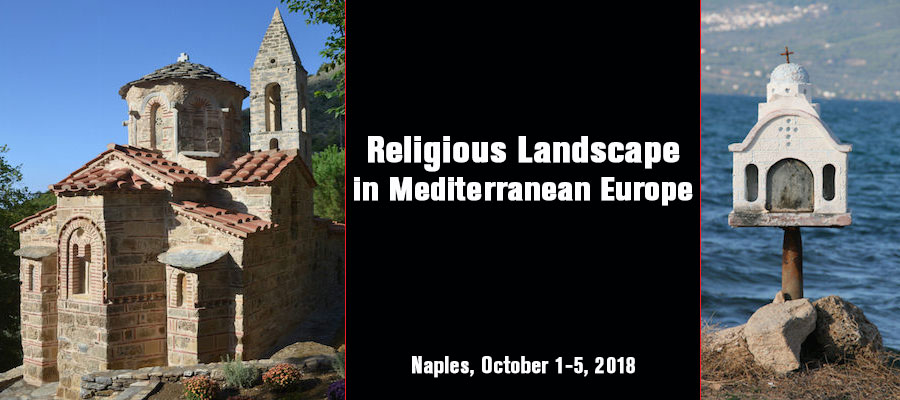Religious Landscape in Mediterranean Europe, Naples, October 1-5, 2018
Applications are open for “Religious Landscape in Mediterranean Europe (14-19th centuries),” the 5th Seminar of Doctoral Studies on the History and Economy in the Mediterranean Countries, to be held in Naples at ISSM-CNR on, 1-5 October 2018
The Institute of Studies on Mediterranean Societies (ISSM - Naples, Italy), Italian National Research Council (CNR), in collaboration with the University of Barcelona (Spain), the Institucio Milà i Fontanals of Consejo Superior de Investigacion Cientifica of Barcelona (Spain), the University of Suor Orsola Benincasa (Naples, Italy), the Italian Historical Institute in Medieval Studies, the Maison Méditerranéenne des Sciences de l'Homme - LabexMed of Aix-Marseille University (France), the University of Pablo De Olavide of Sevilla (Spain), the University of Rouen-GRHis and the Institute of History of Mediterranean Europe (ISEM CNR - Cagliari, Italy), announces a competition for 12 scholarships for young researchers (graduate, PhD and postdoctoral research students) in order to attend the fifth seminar of doctoral studies on the topic of Religious Landscape in Mediterranean Europe.
The Landscape, understood as a space/fabric of communication, relationship and action, and as the constantly renewed materialization of historical processes resolved in its territorial organization, is inextricably linked to one's own religious history. If, on the one hand, the natural environment attracts because of its position, configuration and history so as to introduce the choice of the place destined to become sacred, on the other, it is the environment itself to be marked and transformed by the religious presence, in a relationship that we could state as of mutual determination. Monasteries, convents, parish churches and votive shrines are some conspicuous elements of the religious and social landscape of Europe, tangible traces of the intangible circulation of ideas and people in the medieval and modern past.
So, aware of the different issues that the binomial landscape-religion could reflect and mean, the seminar aims to analyze all the complex correlations that contribute to its construction: social, family and political relationships, assets linked to the economy of religious bodies and to parental networks, community life, the function and impact of liturgical and devotional practices, urban-architectural aspects, territorial organization, and the organizational complexity of parishes and dioceses over a long period of time.
The goal of the seminar is to:
- trace a complete historiographic panorama of the research themes to discover the power of the spatial dimension in the study of the religious phenomenon;
- compare the different regional and national realities to arrive at a comparative history of religious environments;
- identify new research paths in the history of the religious landscape by linking the spatial dimension with new perspectives and methods of approach (gender-related, liturgical, archival, network analysis, etc.);
- identify the chronological differences and the various diachronies of development.
The school has a residential character and will last one week. Classes will be held in Italian, French, English and Spanish to facilitate communication among the participants, and Power Point presentations will be in a language other than the one spoken by the participant.
The seminar consists of two sessions:
- A morning session dedicated to lectures and to visits to some of the city archives in which the historical documents on the topic of the seminar are preserved.
- An afternoon session for presentations of the work of young scholars (30 minutes), followed by discussions.
